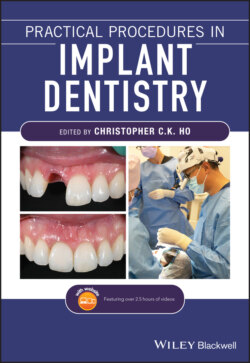Читать книгу Practical Procedures in Implant Dentistry - Группа авторов - Страница 18
2.1.3.1 Cardiovascular Disorders
ОглавлениеUncontrolled hypertension (blood pressure above 160/90 mmHg) places the patient at greater risk of stroke, heart failure, myocardial infarction, and renal failure. Implant surgery may therefore pose a risk to potential adverse cerebrovascular and cardiovascular events.
Patients who have had a cardiac infarction within the previous six months should not undergo surgery, and patients with a history of angina should have glyceryl trinitrate tablets/sublingual sprays available when undergoing implant surgery.
The use of antibiotic prophylaxis may be required for patients with a history of prosthetic valves, infective endocarditis, or rheumatic fever.
Anticoagulant therapy may cause extended bleeding post‐operatively, and patients taking warfarin or heparin should have an International Normalised Ratio (INR) of less than 2.5 prior to the surgical procedure. Consultation with the patient's physician is recommended to determine whether the patient should cease anticoagulant therapy such as aspirin.
